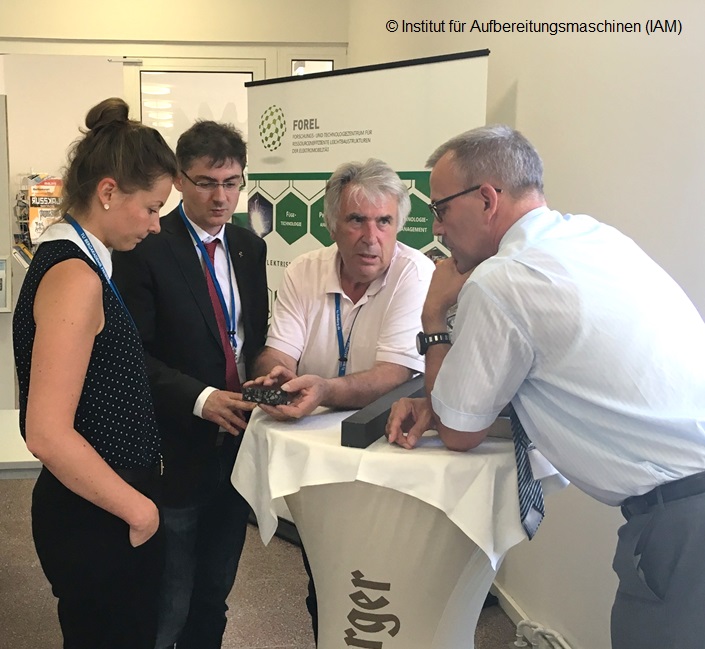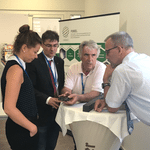Experts presented research results and discussed the recycling pathways of carbon fiber waste
As part of the 69th Freiberg University Forum (69. Freiberger Universitätsforum – BHT) from 06 – 08 June 2018, experts from research as well as industry gathered with representatives of the coordination project FOREL (Forschungs- und Technologiezentrum für ressourceneffiziente Leichtbaustrukturen der Elektromobilität/Research and Technology Center for Resource Efficient Lightweight Structures of Electromobility) and the Federal Environmental Agency to discuss recovery scenarios for waste containing carbon fiber. For this purpose, the Institute of Mineral Processing Machines (Institut für Aufbereitungsmaschinen – IAM) of the TU Bergakademie Freiberg played host to the conference to present the latest findings on the recycling of carbon fiber reinforced plastics (CFRP).

The speakers from the Federal Environmental Agency and the IAM set the framework for this topic and pointed out trends and existing challenges as well as technological gaps. It was found that the quality of recyclates derived from carbon fiber-based plastics (CFRP) depends heavily on the condition of the waste as well as the recycling path, and that the treatment of the waste is very demanding.
It was shown in the lectures that, although there are feasible ways of recycling which can produce recycled fiber of high quality with options for reuse, these methods are only applicable for selected waste. For other sorts of waste, there are still significant challenges for their reprocessing and recovery after the end of the life cycle. The participants from the recycling industry agreed that in the future more material flows will be affected than previously assumed, and that the existing processing technology should be technologically and organisationally adapted to the processing of material flows with CFC contents. So far, the bearers of the additional incurred costs of reprocessing remain unclear, as does the answer to the question about which recycling paths can be used for the residues. Lively discussions focused on compliance with the product responsibility of manufacturers, the introduction of waste code numbers for an improved control of material flows, and regulations on the reuse of recycled goods in the production of new goods took place.
Plenty of exchanges occurred between the manufacturers of CFRP materials, the recycling industry, and the Federal Environmental Agency, where the participants working in academics were able to substantiate the discussions with precise facts. The TU Bergakademie Freiberg with its Institute of Mineral Processing Machines (Prof. Lieberwirth) as well as the Professorship of Recycling Machines (Dr. Jäckel) and Mr. Weißgerber from the Carbon-Werke Weißgerber GmbH & Co.KG were able to also present utilization strategies for CFRP remains, so that a safe disposal can be guaranteed in the future through the recovery of raw materials. However, these strategies are still only at the testing stage. The recycling of CFRP residues remains a challenge for the recycling industry with a few exceptions regarding selected CFRP waste.
Contact information:
TU Bergakademie Freiberg
Institute of Mineral Processing Machines
Prof. Dr.-Ing. Holger Lieberwirth
Director
Phone: +49 3731 39-2558
Fax: +49 3731 39-3500
Mail:
Dr.-Ing. Thomas Krampitz
Research Assistant
Phone: +49 3731 39-2854
Fax: +49 3731 39-3500
Mail:
Funding reference:
This research and development project is funded by the Federal Ministry of Education and Research (Bundesministerium für Bildung und Forschung – BMBF) within the framework project “Research for the production of tomorrow” (grant number 02P16Z014) as well as the Energy and Climate Fund and is supervised by the project promoter Karlsruhe (Projektträger Karlsruhe – PTKA).

